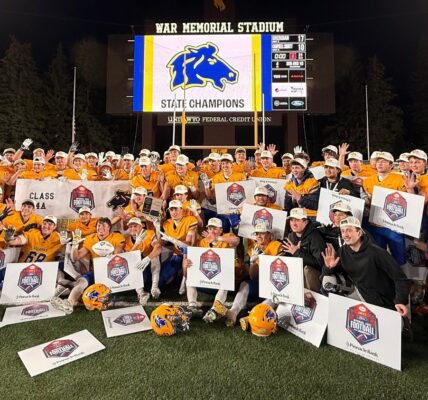Wyoming nuclear developer wants legal protections for private, armed security force
• A legislative panel will mull statutory changes to protect TerraPower’s Natrium security force from civil liability, including when using lethal force.
By Dustin Bleizeffer, WyoFile.com
Don’t mess around at a nuclear power plant facility. If you have no business there but insert yourself anyway, you will be met with armed guards who are directed to “detect, assess, interdict and neutralize” all threats — including with lethal force.
Use of force in securing such facilities, including TerraPower’s Natrium nuclear plant underway near Kemmerer, is required by the U.S. Nuclear Regulatory Commission, according to agency officials. So are a litany of other security measures to ensure the sensitive operations don’t fall prey to “radiological sabotage” — among the highest threats to U.S. national security, they say.
Trained security guards must assume that “adversaries would be dedicated and willing to exhibit lethal force and, quite frankly, receive lethal force in return,” NRC Regional State Liaison Officer Ryan Alexander told members of the Joint Minerals, Business and Economic Development Committee on Thursday in Casper.
TerraPower officials, who will use a highly enriched uranium fuel to power an “advanced” nuclear reactor, presented a draft bill, “Wyoming Security,” to the committee. They’re asking lawmakers to extend protections against civil lawsuits to a private security force, which the company will be required to install when it begins handling nuclear materials. In addition to describing potential statutory changes to accommodate lawful “use of force” by private security guards and related civil protections, the measure refers to standard NRC security requirements and what would be considered criminal trespass.
“Wyoming law currently lacks clear legal authority for trained security personnel performing these duties without such [legal] protection,” TerraPower Nuclear Security Manager Melissa Darlington testified. Without expressed legal protection, TerraPower would still be held to federal NRC standards of security enforcement, she added, which “may result in hesitancy [upon private security personnel] in implementing their duties.”
The committee directed the Legislative Service Office to work up draft legislation based on TerraPower’s proposed language, and agreed to continue discussion at its next hearing in July.
Though most committee members spoke in support of rigorous security — among the primary concerns they’ve heard from constituents regarding Natrium and other potential nuclear facilities — they want to avoid unintended consequences. Such civil liability protections, for example, should not extend to private security guards while not on duty at the nuclear plant, Laramie Democratic Sen. Chris Rothfuss suggested.
“We have to explore, a little bit, how Wyoming statute [currently applies to] use of lethal force if you are not law enforcement,” he said. “We don’t typically grant civilians the right to lethal force, and particularly when they’re not representing the state or the community, [but] they’re representing a corporation.”
NRC officials admitted it’s a “delicate situation” for each state that hosts nuclear facilities.
“These protections are not unlimited,” said Darlington, who noted she will move to Kemmerer this summer to help oversee security at the Natrium plant. “They only apply to security personnel at commercial nuclear facility sites who are acting with reasonable belief and within the scope of their employment.”
Though some communities opt to train local law enforcement to qualify in on-site security efforts, that’s not likely to be the case in Lincoln County, according to TerraPower and local officials. Law enforcement will work closely with the company and NRC to coordinate emergency responses, said Lincoln County Sheriff Shane Johnson. But local agencies simply don’t have the resources or expertise to take on federal nuclear security.
“TerraPower will have more security guards than there is law enforcement officers in Lincoln County,” Johnson told the panel.
Several committee members expressed anxiety over providing civil liability protections to a private, corporate security force. Rothfuss suggested the committee should consider forming a special task force to explore the issue.
“When we’re writing statute, we don’t want to provide somebody who’s an armed-nuclear-security guard the authority to use deadly force on the other side of town,” he said.
WyoFile is an independent nonprofit news organization focused on Wyoming people, places and policy.





